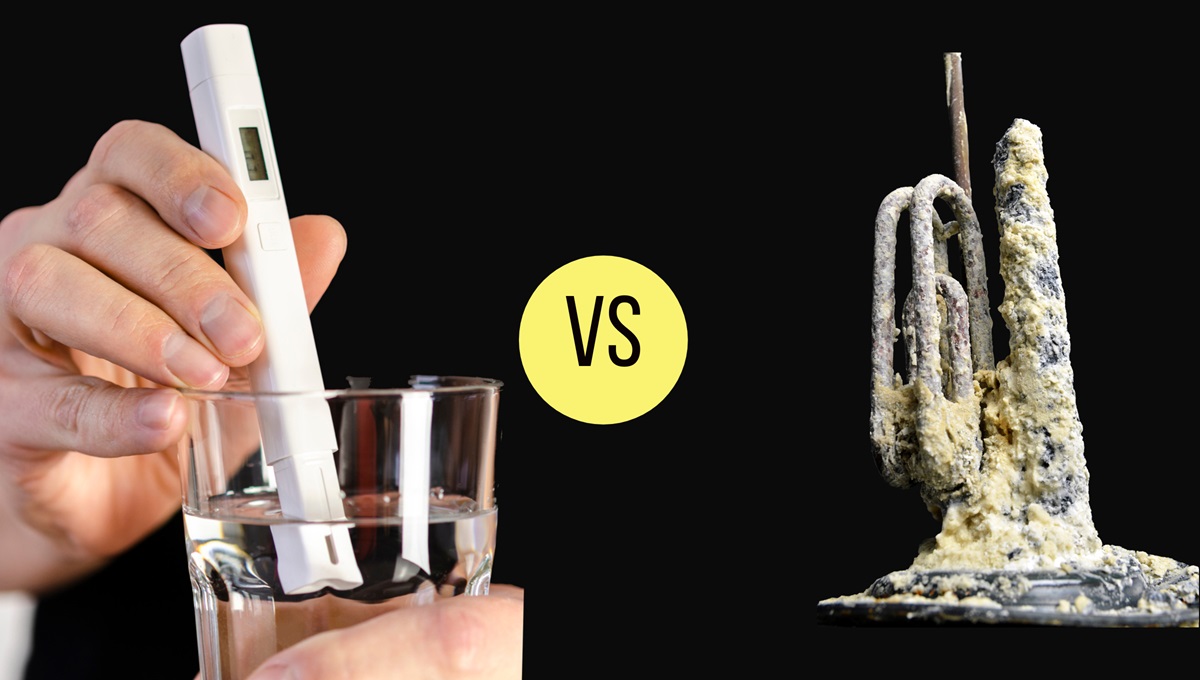

Water high quality is a crucial facet of varied industrial, agricultural, and home functions.
Two necessary parameters used to evaluate water high quality are Total Dissolved Solids (TDS) and hardness.
Whereas each measurements present helpful details about water composition, they deal with different aspects of water quality.
Fairly often individuals assume TDS and hardness are the identical.
On this article, we’ll delve into the variations between TDS and hardness, their significance, and the influence they’ll have on completely different water makes use of.
Complete Dissolved Solids (TDS)
TDS refers back to the complete quantity of inorganic and natural substances dissolved in water.
These substances can embrace minerals, salts, metals, ions, and different dissolved particles.
TDS is usually measured in components per million (ppm) or milligrams per liter (mg/L).
Click on to learn: How to Check TDS Level in Water
The focus of TDS in water can differ based mostly on the water supply, geographical location, and human actions.
Sources of TDS embrace pure processes such because the weathering of rocks, in addition to human actions like agriculture runoff, industrial discharges, and wastewater effluents.
Click on to learn: How to Reduce TDS Level in Water
TDS ranges are sometimes used as an indicator of water high quality, and excessive TDS values might have an effect on the style, odor, and general acceptability of water for consumption.
Hardness
Hardness, however, is a measure of the focus of calcium and magnesium ions in water. These ions are primarily chargeable for water hardness and might be current as calcium carbonate (CaCO3) and magnesium carbonate (MgCO3).
Click on to learn: Difference Between Hard Water and Soft Water.
Hardness is normally expressed in milligrams per liter (mg/L) or grains per gallon (gpg).
The hardness of water might be labeled into two sorts: momentary hardness and everlasting hardness.
Click on to learn: How to convert Hard Water to Soft Water
Non permanent hardness is brought on by the presence of bicarbonate ions (HCO3-). It may be eliminated by boiling the water, whereas everlasting hardness is as a result of presence of non-carbonate ions and requires using water softeners for discount.
Click on to learn: How to Check the Hardness of Water
Variations Between TDS and Hardness
| Standards | Complete Dissolved Solids (TDS) | Hardness |
|---|---|---|
| Composition | Consists of minerals, salts, metals, and natural matter. | Primarily measures the focus of calcium and magnesium ions. |
| Measurement Models | Components per million (ppm) or milligrams per liter (mg/L). | Milligrams per liter (mg/L) or grains per gallon (gpg). |
| Removing Strategies | Processes like reverse osmosis, distillation, or deionization. | Boiling for momentary hardness; Water softeners (ion alternate, chemical precipitation) for everlasting hardness. |
| Affect on Water High quality | Excessive TDS ranges might have an effect on style, odor, and general acceptability. | Can result in scale formation in pipes and home equipment, decreasing effectivity. |
Understanding these variations is crucial for addressing particular water high quality considerations and choosing applicable therapy strategies.
Conclusion
In abstract, TDS and hardness are two distinct parameters used to judge completely different facets of water high quality.
TDS gives a complete measure of all dissolved substances, whereas hardness particularly focuses on the focus of calcium and magnesium ions.
Understanding the variations between TDS and hardness is essential for choosing applicable water therapy strategies and making certain water high quality meets the specified requirements for numerous functions.
Trending Merchandise











